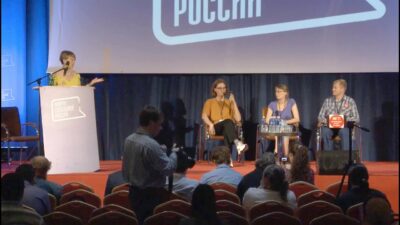Tut.by, a leading independent news site in Belarus, says it has removed its social media archive for the last 18 months to shield its staff and readers from persecution amid an ongoing crackdown on the country’s pro-democracy movement.
The site’s editors explained the move on June 28 as an effort to avoid possible criminal probes against employees and readers after an investigation was launched against the news site for allegedly fomenting “extremism.”
They added that the archives were not deleted, just temporarily “hidden,” with its Telegram channel being operated by administrators located outside the country.
Tut.by also said that it had removed the log-in verification option from its Telegram channel in order to allow it to rename the channel as soon as possible in case the news site is officially labeled as “extremist” by Belarusian authorities.
Last month, 15 journalists working for Tut.by were detained, the news site was blocked, and the company’s bank accounts were frozen after a criminal case on tax evasion charges was launched against the news site’s editors.
In mid-June, the Interior Ministry officially requested that a Minsk court recognize the news site and its accounts on social networks as “extremist.”
A decision on the issue was expected on June 24, but the hearing was postponed to a later, unspecified date.
Tut.by and online resources related to it comprise the largest Internet holding in Belarus. In December, Belarusian authorities deprived Tut.by of its media license, citing warnings the website had received for extended coverage of the crackdown on protests that erupted after a disputed presidential election last August.
Electoral officials say the country’s authoritarian ruler Alyaksandr Lukashenka, in power since 1994, won the vote, but opposition figures say the election was rigged and that their candidate, Svyatlana Tsikhanouskaya, was the victor.
Security officials have cracked down hard on the demonstrators, arresting thousands and pushing most leading opposition figures out of the country.
Several protesters have been killed in the violence and rights organizations say there is credible evidence of torture being used against some of those detained.
Lukashenka denies voter fraud and has refused to negotiate with the opposition.
The European Union, the United States, Canada, and other countries have refused to recognize Lukashenka, 66, as the legitimate leader of Belarus and have imposed sanctions on him and senior Belarusian officials in response to the “falsification” of the vote and postelection crackdown.



